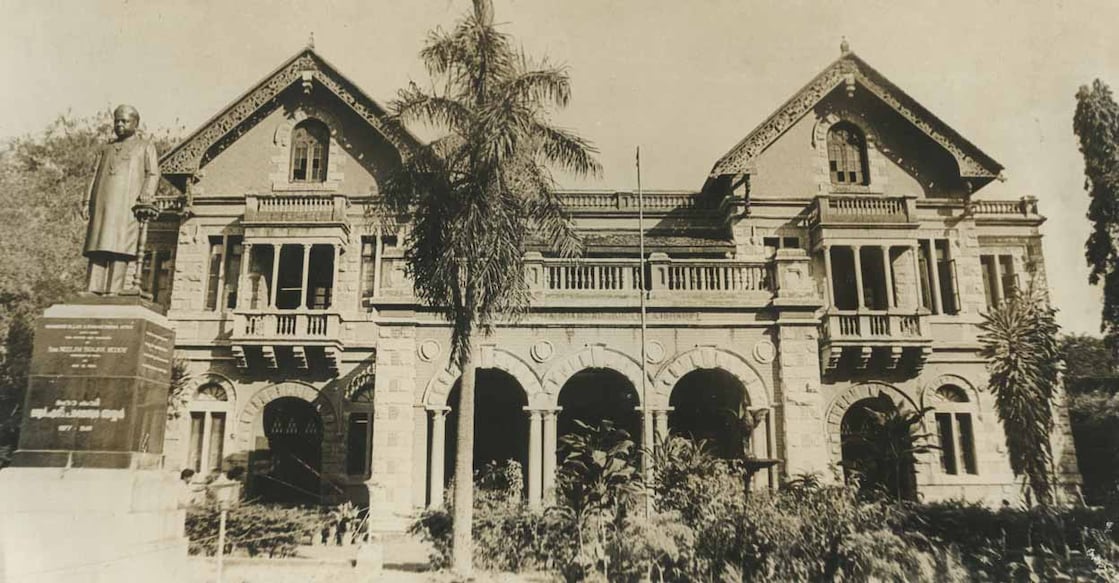Column | Of Malayalam names and transliteration

Mail This Article
Names of places and people in Kerala can pose a challenge to the best of reporters and writers who are not familiar with Malayalam. Take for instance, Kerala’s capital city. How many non-Malayalis can spell Thiruvananthapuram correctly without using Google? How about pronouncing the names of the city?
Trivandrum was used commonly in English from the days of the Travancore state and remains in public memory. Of course, few people used that name when speaking in Malayalam - it was really Thiruvanduram for us, until we were told that the official name is what it is. Now, an increasing number of people use the official name in informal conversations.
Getting the spelling of places ending with puzha, like Alappuzha, Malampuzha or Thodupuzha is easier than the state capital, but try getting a non-Malayali or non-Tamil to get the pronunciation right.
There’s little chance that a wrong spelling in English would lead to mail getting lost, but one of the problems with transliteration of words in Malayalam or other South Indian languages is the many ways to spell them. Chances of an error in spelling of a Malayalam name in an Indo-European or Dravidian language are slim, but English is a whole new ballgame. A missing ‘a’ or ‘h’ could lead to disparities in spelling between two documents that the authorities want linked electronically. Only the worst bureaucracy would require sworn affidavits proving that someone with two slightly off spellings in two or more documents are the same person.
The colonial archives contain a wealth of information about transliteration of people’s names and how attempts were made to standardise spellings. A 1906 letter from the Secretary to the Government of India to the Chief Secretary of the Government of Madras leaves some clues about the process that went into getting a standard spelling for some names and the shortening of others.
The letter spoke of the need of the government to do away with affixes like “Garu” and “Avargal,” which were termed as “honorific expressions” to be omitted in official lists. One simply cannot get over the irony of such titles being done away by a regime in whose country there is still a “Marquess of Cholmondeley” in 2024!
“In the case of titular names such as Chari, Mudali, Chetti, etc, the list is not consistent, as these sometimes appear in a plural form, Charlu, Mudaliar, Chettiar, etc,” the Secretary wrote in the letter. “The Governor General in Council is of the opinion that the singular form should be used in every case but two. The exceptions are the name Ayyar, and this may be used instead of the rarer form Ayyan, which does not occur at all in the list, and the Malayalam name Nambiyar.”
This is the first time I am coming across the spelling Ayyan. The name Ayyar is alternatively spelt as Aiyar and more commonly as Iyer. This seems to be a standardisation that did not stick. Nambiyar is now more or less universally spelt as Nambiar.
Nair, not mentioned in that letter, is spelt as Nayar as well. Funnily enough, Punjabis with the name which is pronounced as Naiyar, use both the spelling Nair and Nayar. A Malayali can never be too careful about claiming someone who spells their name as Nair. The extraordinary filmmaker Mira Nair is definitely not a Keralite.
From the 1906 letter, it is clear that the surname Ayyar went beyond just Tamil-speaking Brahmins, many of whom lived in Palakkad. “A difficulty has risen in the case of names ending in Ayya, as this termination may or may not denote that the bearer of the name is a Brahman,” the Secretary wrote. “It is understood that this termination, without the final ‘r’ is commonly used by Telugu Brahmans, and occasionally amongst Tamil Brahmans also. The Government of India are disposed to think that it will be better to index all Brahmans, whether Tamil and Telugu, who use either of these affixes under ‘Ayyar.’”
In 2024, it is still a common practice for Malayalis to add the father’s name to a child’s and not keep a surname. The obvious benefits to this are the hiding of the caste identity, which should hopefully fade in two generations.
While spellings of places are more or less standardised in Kerala, the popular concept of numerology will ensure that both first and last names will be spelt in a myriad of ways. Those who do so to get alleged benefits from this, would probably not mind the potential bureaucratic hassles that come with it.
(Ajay Kamalakaran is a multilingual writer, primarily based in Mumbai)


